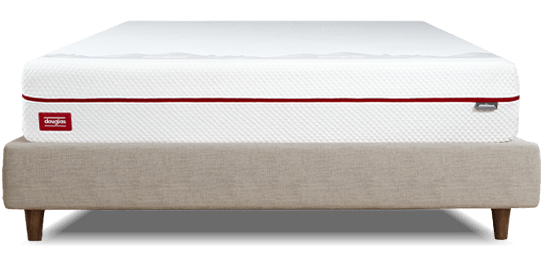Is Social Media Linked to Sleep Disturbance?
Updated: January 15, 2026 | Published: August 15, 2025Social media platforms like Instagram and TikTok have quickly become an indispensable part of our lives. Some statistics show that over 90 percent of teenagers are now using social media on a daily basis. More and more evidence is piling up that demonstrates a link between social media usage and assorted aspects of adolescent health and well-being, including mental health and sleep habits.
A 2016 study from the University of Glasgow, entitled #Sleepyteens: Social media use in adolescence is associated with poor sleep quality, anxiety, depression and low self-esteem, has linked social media use in young people to lower sleep quality.
Regardless of social media use, poor sleep quality is all too common in adolescents and can be attributed to depression, low self-esteem, and anxiety. Considering that adolescence is a period of greater vulnerability for low self-esteem and the onset of anxiety and depression, it is crucial to comprehend how social media use is related to these factors.
New Studies Examine Social Media and Sleep Quality
There is a considerable body of evidence linking poor sleep habits to the Internet and computer use in general, with only a small fraction of recent studies observing social media use specifically.
Heavy Internet use is correlated with shorter sleep duration, longer sleep latencies, later bedtimes and rise times, and increased daytime tiredness in teens. However, since it is a phenomenon that is relatively recent, social media has yet to be widely researched.
To address this gap in the literature, several new studies have examined how adolescents’ sleep quality is related to social media use specifically. The initial predictions were that greater social media use would be associated with poorer sleep quality, which fits in with previous studies on general Internet use.
The research mentioned above on Internet use, in general, is unquestionably relevant when considering social media usage, as young people spend 54 percent of their total time online using social media.
24-Hour Notifications Can Be Quite Harmful
There is an important distinction when it comes to social media use as opposed to other types of Internet use. Specifically, the existence of incoming alerts and notifications that happen 24 hours a day, seven days a week. This is an exclusive feature of social media that is especially relevant to sleep quality for two main reasons.
First, incoming alerts during the late evenings have the ability to disturb sleep, as 86 percent of adolescents sleep with their mobile phone in the bedroom, commonly under their pillow or even right in their hand.
(Almost 25 percent of teenagers reported sleep disturbances as a result of incoming social media alerts or text messages.)
Second, relentless incoming alerts create significant pressure to be available 24 hours a day, and bestow a fear of missing out.
Young adults have reported feeling substantial anxiety when their access to texting is limited, and admit to feeling guilty and stressed when they do not reply to a message in the standard amount of time. Therefore, it is possible that young people have a tough time relaxing at bedtime due to a fear of missing out on new messages or content.
These increasingly common aspects of social media use provide a strong argument for a link with reduced sleep quality.
Further Research Confirms Unsettling Predictions
A 2014 study from the University of Pittsburgh School of Medicine led by Dr. Jessica C. Levenson looked into The Association between Social Media Use and Sleep Disturbance among Young Adults. The University of Pittsburgh Schools of the Health Sciences include the schools of Medicine, Nursing, Dental Medicine, Pharmacy, Health and Rehabilitation Sciences and the Graduate School of Public Health.
The research found that young people who use social media more often are also more likely to suffer from disturbed sleep patterns.
“This is one of the first pieces of evidence that social media use really can impact your sleep. And it uniquely examines the association between social media use and sleep among young adults who are, arguably, the first generation to grow up with social media,” said Levenson.
In 2014, Dr. Levenson and her associates sampled 1,788 American adults aged 19 through 32, using questionnaires to establish social media use and a measurement system to assess sleep disturbances. The questionnaires asked about the 11 most common social media platforms at the time: Facebook, YouTube, Twitter, Google Plus, Instagram, Snapchat, Reddit, Tumblr, Pinterest, Vine and LinkedIn.

Results determined that insufficient sleep duration and sleep disturbance are associated with daytime sleepiness and a variety of poor health outcomes. For instance, insufficient sleep adversely affects cognitive performance, weight, mood, immune function, cardiovascular risk, and metabolism.
Final Thoughts
Levenson’s research pointed to three specific manners in which social-media use can aggravate sleep issues:
- Late-night engagement on social-media channels can affect the perception of time.
- Interaction with other users on these platforms can trigger emotional, cognitive, or physiological reactions that can make falling asleep more difficult.
- The light emitted by computer screens can disrupt circadian rhythms and disturb sleep patterns.
The fact is that sleep and circadian functioning are critical in promoting overall health. While it is suggested by medical professionals that young and midlife adults obtain 7 to 9 hours of sleep per night, 40 percent of American adults report getting under 7 hours of sleep per night on weeknights.
Furthermore, 38 percent wake up feeling unrefreshed, and 21 percent have trouble falling asleep several nights per week. Finally, of young adults ages 19 to 29, 67 percent report not getting enough sleep to properly function.
Related article: 5 Causes for Losing Sleep & What To Do About Them
